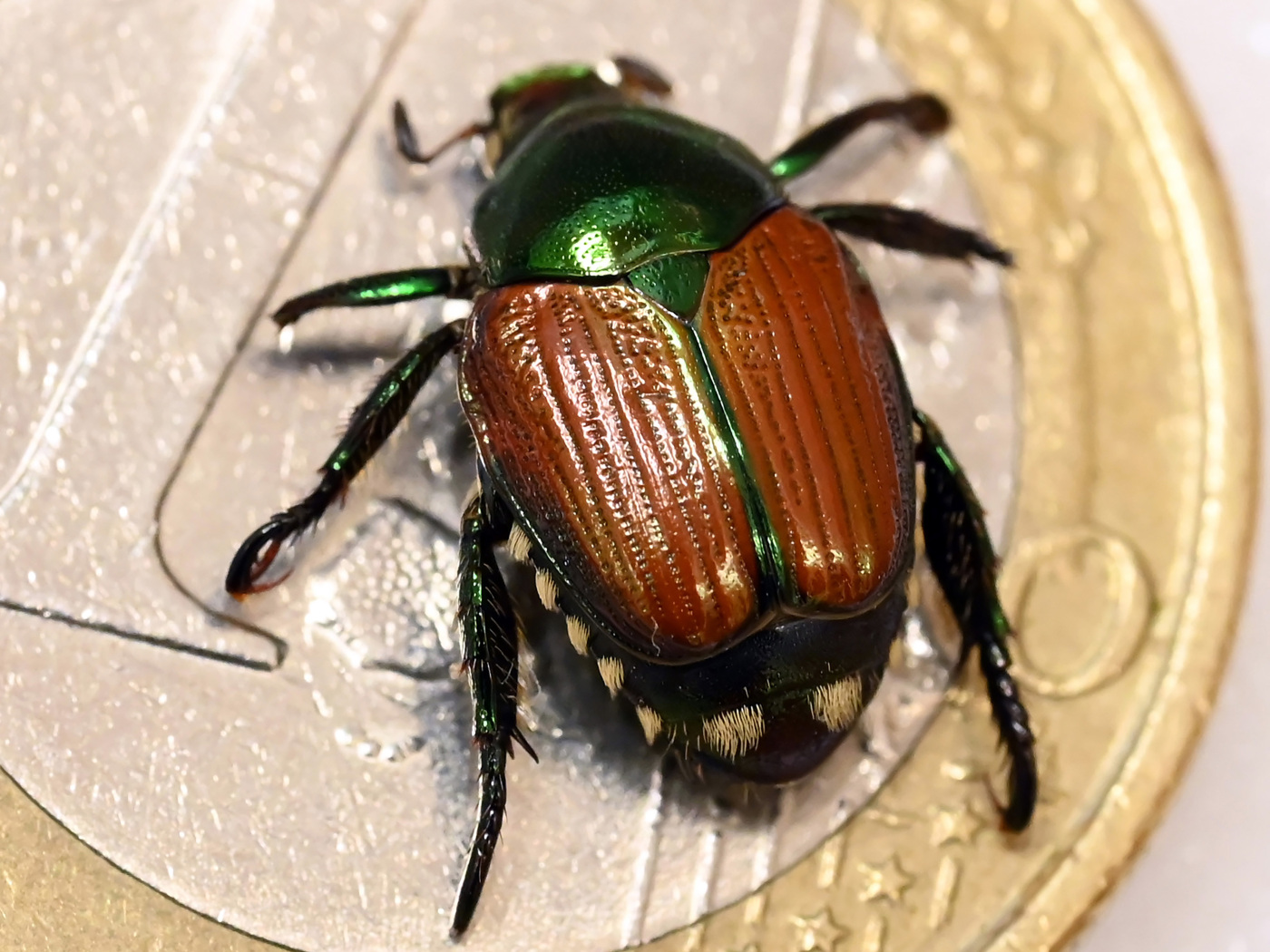
Swiss canton fights spread of Japanese beetle

The invasive Japanese beetle has been discovered in Valais, southwestern Switzerland. The canton now wants to stop the spread of the voracious plant pest.
+Get the most important news from Switzerland in your inbox
Twenty specimens of the Japanese beetle were detected in the Rhone plain in Valais between the end of July and mid-September 2024 in the municipalities of Raron, Visp, Lalden, Brig-Glis, Naters, Ried-Brig and Termen, canton Valais said on Friday. Residents also found a single specimen in a house in Sierre.
The canton has issued bans and restrictions in the affected area. These relate to the transportation of compost, green waste, soil, potted plants and the cleaning of equipment and vehicles for ground work. Next year, the authorities will continue to control the pest using pheromone traps. In addition, the buffer zone will be monitored more closely.
The beetles were probably introduced by road from northern Italy or from the south side of the Simplon, the press release continued. Originally from Japan, the leaf horn beetle species has been detected in northern Italy since 2014 and in Ticino since 2017. Last year, the insect was found for the first time in Valais in the municipalities of Simplon and Zwischbergen.
+ Spread of Japanese beetle leads to lawn-watering bans in Basel
The Japanese beetle feeds on over 400 plant species. Adult specimens can cause great damage by eating the leaves, flowers and fruit of various plants, including apple trees, stone fruit trees and vines. The larvae feed on the roots of various grasses.
As it is considered a major threat to agriculture and the environment, the authorities regard the Japanese beetle as a priority quarantine organism. It must be reported in Switzerland as well as in the European Union.
+ How Switzerland is battling invasive species
Last summer the Japanese beetle caused FC Basel’s training pitch in Münchenstein to be closed. The footballers had to move to an alternative pitch to combat the insect.
Translated from German by DeepL/ts
This news story has been written and carefully fact-checked by an external editorial team. At SWI swissinfo.ch we select the most relevant news for an international audience and use automatic translation tools such as DeepL to translate it into English. Providing you with automatically translated news gives us the time to write more in-depth articles.
If you want to know more about how we work, have a look here, if you want to learn more about how we use technology, click here, and if you have feedback on this news story please write to english@swissinfo.ch.

In compliance with the JTI standards
More: SWI swissinfo.ch certified by the Journalism Trust Initiative





























You can find an overview of ongoing debates with our journalists here . Please join us!
If you want to start a conversation about a topic raised in this article or want to report factual errors, email us at english@swissinfo.ch.